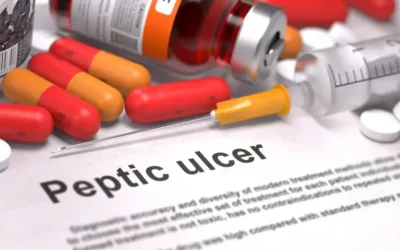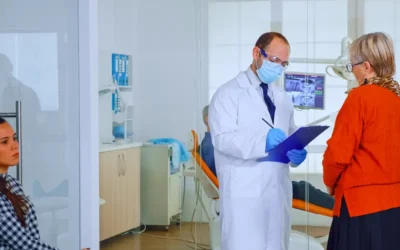Gastroesophageal reflux disease (GERD) is a common digestive disorder that occurs when the stomach acid backs up or refluxes into the esophagus (the tube connecting your mouth and stomach). Also called acid regurgitation, this condition can cause a burning sensation (known as heartburn) in the chest. Documenting this disorder requires correct recording of all the symptoms and treatments provided. Medical coding outsourcing is worth considering as this can help gastroenterologists ensure accurate and timely claim filing and reimbursement.
According to estimates from the American College of Gastroenterology (ACG), about 60 million people in the United States experience acid reflux at least once a month. More than 15 million experience it every day. If left untreated, this gastric disorder can lead to serious complications such as narrowing of the esophagus, esophageal ulcer and precancerous changes to the esophageal structure (known as Barrett’s esophagus).
In most cases, a healthy diet combined with positive lifestyle changes can help reduce the frequency of acid reflux. Treatment methods aim to decrease the amount of reflux or reduce the potential damage caused to the esophagus lining from refluxed materials. GERD can usually be controlled by acid reflux medications such as Antacids, H-2-receptor blockers, Proton pump inhibitors, Histamine antagonists and Foam barriers. However, if medications do not provide the desired effect gastroenterologists may recommend surgical treatments that include – Fundoplication, LINX device and other endoscopic procedures. Gastroenterology medical coding services help physicians report the correct codes that reflect the various treatment services provided to patients in the office or hospital settings.
CPT Codes to Use
- 43200 – Esophagoscopy, diagnostic
- 43201 – Esophagoscopy flexible, transoral; with directed submucosal injection(s), any substance
- 43210 – Esophagogastroduodenoscopy, flexible, transoral; with esophagogastric fundoplasty, partial or complete, includes duodenoscopy when performed
- 43236 – Esophagogastroduodenoscopy, flexible, transoral; with directed submucosal injection(s), any substance
- 43241 – Esophagogastroduodenoscopy, flexible, transoral; with insertion of intraluminal tube or catheter
- 43257 – Esophagogastroduodenoscopy, flexible, transoral; with delivery of thermal energy to the muscle of lower esophageal sphincter and/or gastric cardia, for treatment of gastroesophageal reflux disease
- 43284 – Laparoscopy, surgical, esophageal sphincter augmentation procedure, placement of sphincter augmentation device (i.e., magnetic band), including cruroplasty when performed
- 43289 Unlisted laparoscopy procedure, esophagus
- 43499 Unlisted procedure, esophagus
- 43999 Unlisted procedure, stomach
Identifying Causes and Symptoms
GERD that occurs among people of all age groups is caused by frequent acid reflux. It is more commonly seen in people who are obese or overweight, pregnant women, active or secondhand smokers and people who consume certain medications including – antidepressants, sedatives, calcium channel blockers and antihistamines.
One of the most common symptoms is heartburn or a burning sensation in your chest, usually after eating (which might become worse at night). Some of the other common symptoms include chest pain, regurgitation of food or sour liquid, difficulty swallowing, nausea or vomiting, and a sensation of a lump in your throat.
ICD-10 Diagnostic Codes for GERD
Initial diagnosis will begin with a detailed physical examination and a thorough review of your signs and symptoms. In order to confirm a diagnosis of GERD, or to check for further complications, gastroenterologists may recommend several tests such as – Upper gastrointestinal (GI) endoscope, Esophageal manometry, Ambulatory acid (pH) probe test and Upper GI series X-ray. Incorporating significant lifestyle changes along with over-the-counter medications can help reduce the symptoms. If lifestyle modifications do not considerably improve the symptoms of GERD, or medications do not show the desired effect, a gastroenterologist may recommend surgery as a last resort.
Gastroenterologists who treat GERD rely on reputable medical billing companies to code the condition accurately. The following ICD-10 codes are relevant with regard to gastroesophageal reflux disease –
- K21 – Gastro-esophageal reflux disease
- K21.0 – Gastro-esophageal reflux disease with esophagitis
- K21.9 – Gastro-esophageal reflux disease without esophagitis
Living with gastroesophageal reflux disease (GERD) is difficult. There are several risk factors associated with this condition which may include – obesity, connective tissue disorders (such as scleroderma), bulging of the top of the stomach up into the diaphragm (hiatal hernia), pregnancy and delayed stomach emptying. Healthy lifestyle changes that can reduce the frequency of acid reflux include – quitting the habit of smoking, reducing alcohol consumption, reducing the intake of fatty foods or drinks that trigger reflux, avoiding overeating and losing excess body weight.




